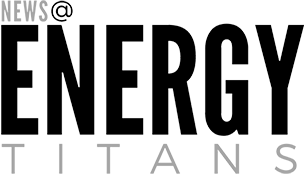‘To what end?’: the murky question of Bill Hwang’s motive in Archegos trial
At the trial of Bill Hwang, which begins this week, prosecutors will portray him as a criminal who masterminded “deceitful and abusive” trades worth billions of dollars that sent tremors through the US stock market.
But three years on from the dramatic collapse of Hwang’s Archegos fund, which left several banks nursing huge losses, the government is still struggling to pinpoint a criminal intent behind his alleged scheme.
“What I’m trying to figure out in my mind: to what end,” Alvin Hellerstein, the veteran judge overseeing the case asked last year, after prosecutors outlined how Hwang had covertly and artificially driven up the stock price of a handful of listed companies, only for them to later plummet. “He lost his money.”
The question of why the quiet 60-year-old trader pumped up carefully-picked stocks with borrowed money is not one that needs to be considered by a jury as a matter of law. The government need only prove beyond a reasonable doubt that Hwang intended to commit acts he knew to be illegal, leading to market panic and costing several banking executives their jobs.
But for the 12 New Yorkers who will be selected to sit in judgment of the enigmatic investor over the next eight weeks, it may become a sticking point.
Motive was often “a determinative part of the story that you tell the jury”, said Joshua Naftalis, a former prosecutor at the office that charged Hwang, who faces a potential life sentence if found guilty on charges including racketeering and securities and wire fraud. “If you can’t explain why a person committed fraud, people often sit there scratching their heads.”
A pastor’s son who moved from South Korea to the US as a teenager and taught himself English, Hwang worked for Julian Robertson’s Tiger Management, becoming one of the billionaire’s “tiger cub” mentees. He left to run his own Asia-focused hedge fund, Tiger Asia, which was hastily closed in 2012 after it was accused of insider trading and pleaded guilty to US fraud charges.
Soon after, Hwang rebranded the fund, calling it Archegos in a nod by the devout Christian to the ancient Greek word for leader, used in the Bible to describe Jesus as the “author” of salvation.
Having started out with a few hundred million dollars of his own money, Hwang amassed enormously powerful positions using derivatives known as swaps, in which a bank extends a line of credit to customers so that they can speculate on specific shares. If the price of those shares goes up, the client reaps the rewards, but if it drops, the bank asks for more cash to cover the difference, in what is known as a “margin call”.
By early 2021, Archegos had more than $30bn in assets under management, and concentrated stakes in companies such as ViacomCBS and Tencent — which sometimes amounted to more than half of the freely available shares.
When a series of external events led some of Hwang’s bets to go sour, the financier unwound some investments to make up the shortfall, and banks soon started selling their positions to stem their losses, causing market chaos.
The demise of Archegos rocked public markets. “More than $100bn in apparent market value for nearly a dozen public companies disappeared within days,” the 2022 indictment against Hwang and some of his co-workers alleged.
It accused the investor of buying up shares at specific times to drive up prices, before the bubble eventually burst. Two of Hwang’s former co-workers pleaded guilty while another will stand trial with him.
The fallout also led to billions of dollars of losses at Credit Suisse and Nomura, who had lent the money with which Hwang made his bets. Other banks that did business with Archegos, including Morgan Stanley and UBS, took substantial hits as a result of the forced fire sale.
From the start, prosecutors have been vague in their explanation of the criminal contours of Hwang’s plan. Asked by Hellerstein during one pre-trial hearing whether the trader had engaged in a “pump and dump” scheme, assistant US attorney Andrew Thomas offered that Hwang had rather been involved in a “pump and brag” enterprise, and said witnesses at trial would “describe the sort of king of the universe type thinking” that caused him to harbour “visions of grandeur”.
An alternative theory was offered by former Archegos managing director Brendan Sullivan, who alleged in a separate civil lawsuit brought in 2022 that the investment group transferred shares worth hundreds of millions of dollars to Hwang’s Grace and Mercy Foundation that was to be used as a financial “escape pod”. Sullivan is expected to testify at the trial.
The government has hinted that it will also offer evidence at trial of how Hwang sought “profitable off-ramps” for his Archegos trades, and that it will “fill in some of the context” while making its case to a jury.
Hwang’s lawyers have claimed that their client “traded in a very limited portfolio of names that he studied well”, and “believed like every other investor in the world that the best time to buy was . . . when the price is low”.
Even if that argument proves unconvincing to a New York jury, the Department of Justice could face a long fight in appellate courts on the law that prosecutors have leveraged to bring the case.
Prosecutors concede that Hwang’s individual trades were not necessarily unlawful. There was no legal requirement at the time for him to disclose the large positions amassed via swaps, because the underlying shares were technically owned by the banks.
The government has consistently maintained that “market manipulation can be accomplished through otherwise legal means” and that the way Hwang designed his trades were “intentionally deceptive” and thus criminal in intent.
Hellerstein has forbidden Hwang’s defence team from arguing in front of a jury that the case relies on a “novel theory” of market manipulation. Yet US prosecutors and regulators have a mixed record for cases based on so-called open market manipulation, in which otherwise legitimate trading activity is made illegal by its intent.
In the early 1990s, an appeals court overturned Wall Street trader John Mulheren’s conviction for securities fraud over purchases of Gulf and Western stock that prosecutors claimed were made in order to boost prices so that a friend would profit from selling his stake in the company. The Second Circuit concluded the government had failed to prove Mulheren was not buying the stocks as an investment.
A few years later, in a case brought by the Securities and Exchange Commission against Mexican billionaire Moises Masri, a New York court concluded that if an investor “conducts an open market transaction with the intent of artificially affecting the price of the security, and not for any legitimate economic reason, it can constitute market manipulation”. The claims against Masri were later dropped by the SEC.
Such split decisions are likely to embolden Hwang, who has hired heavyweight lawyers including Barry Berke, who worked on the impeachment case against Donald Trump, to fight any conviction in higher courts.
Hwang has attended hearings in the civil and criminal cases against him, often taking detailed notes in the gallery. Yet unless he takes the stand, the true story behind his alleged scheme may remain a mystery to jurors, to judge Hellerstein, and to the financial world still awaiting answers.
“What was in it for him?” the 90-year-old judge asked. “Being a big shot, I suppose that’s possible, but it doesn’t seem to me that was his aim.”



